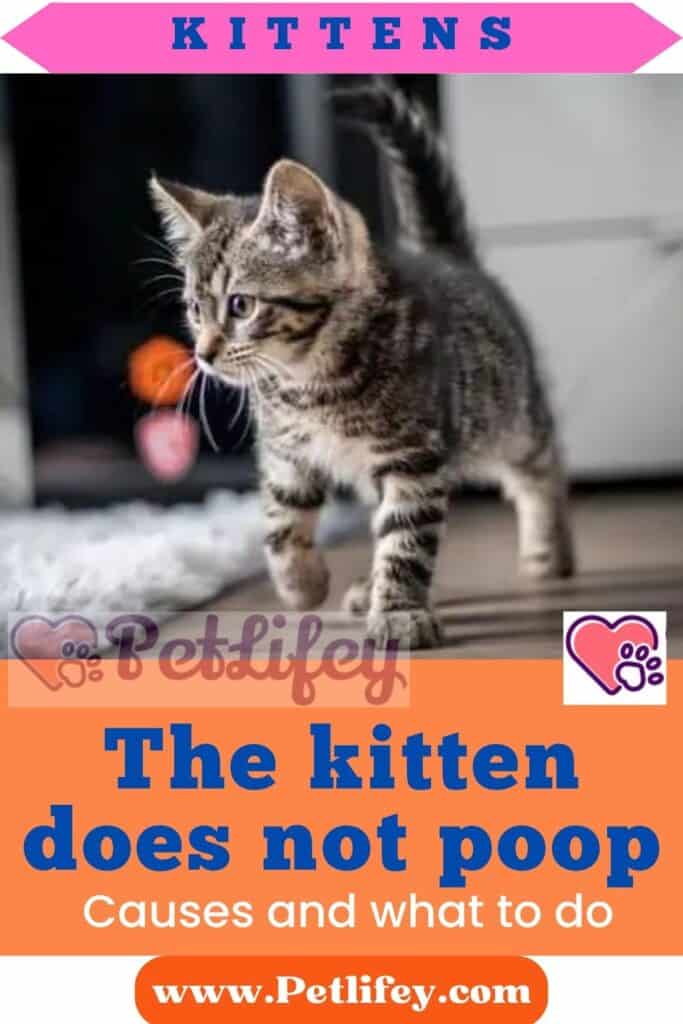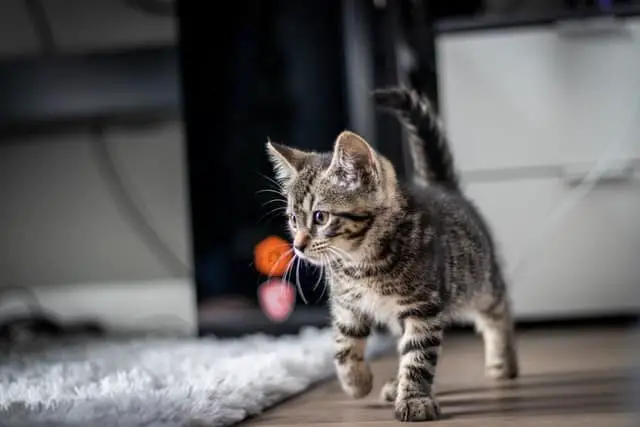
The kitten does not poop what are the reasons and signals of the body? How to understand when it becomes a problem to worry about? Let’s see how to help the cat.
If the kitten hasn’t pooped for a day or two we can’t call it a problem, it could be a temporary condition and not a serious one.
Instead it becomes dangerous, if it exceeds the third day of constipation, in this case some potential risks begin to arise.
Let’s see what are the signals that the kitten’s body sends, when to worry and at the same time intervene to help the cat.
The kitten does not poop: the causes
The causes for which the kitten does not poop can be different and can concern both the emotional and physical aspects, for example:
- Trauma related to the litter box : we speak of litter trauma in particular for those recently adopted kittens who are not familiar with the litter box or to make it at home. The same applies to those cats whose previous history is unknown and therefore any trauma related to the use of the cat litter. In this case it is advisable to consult with the veterinarian to try to eliminate the psychological block to the kitten;
- Feeding: the choice of feeding the kitten must be taken together with the veterinarian, as it is very easy that a wrong diet with carbohydrates and fats, can create situations of constipation in the animal, for which a diet rich in fiber and proteins. It will therefore be necessary to draw up a specific diet for the recently weaned kitten;
- Dehydration of the kitten: dehydration does not allow the correct development of the digestive function. Lack of water in the cat’s body can cause severe damage and problems in defecation. It is in fact necessary to check that the kitten is drinking enough.
Symptoms

Learning to recognize the symptoms of kitten constipation is essential to be able to intervene as soon as possible and not risk the situation worsening, damaging the health of the cat.
The signs that we can associate with a cat constipation problem can be the following:
- Insistent meowing and moaning : the insistent meowing of the kitten means that something is wrong with the puppy. If you then try to bring your hand close to the cat’s abdomen and he retracts, then it is very likely that it is a belly problem;
- Irritability : irritability is one of the main symptoms of constipation in cats as well as in humans. Precisely for this reason the kitten will be very nervous both for the inability to defecate and for the pains it perceives;
- Intense abdominal pain: in this matter the concern is double, as in addition to the lack of action, there is suffering from strong abdominal pain in the kitten. It will therefore be necessary to let the veterinarian intervene as soon as possible.
- Rrefusal of the litter box: the kitten feels the refusal of the litter box and most likely does not like the smell but what is essential in this case is to replace it.
- Too much time inside the litter box: a situation paradoxically opposite to the previous one can also occur, namely that the cat spends too much time inside the litter box, but without being able to poop. In this case the kitten does not poop due to a problem linked to an intestinal discomfort or a feline intestinal blockage.
The kitten does not poop how to intervene?
In order to intervene in a situation such as this of the kitten that does not poop, the intercession of the veterinarian is necessary.
Obviously taking into account the gravity of the situation. There are many remedies for kitten constipation and we can use them where the situation is not serious and does not recur.
The remedies to be used can be the following:
- Balanced diet : nutrition is the basis of everything, a good diet leads to a healthy life and certainly if the animal suffers from constipation, the diet is incorrect. In the case of the constipated kitten, it is essential to add foods rich in fiber;
- Kitten Olive Oil: A little kitty olive oil is one of the oldest and most effective remedies. Before resorting to drugs;
- Right amount of water: it is necessary to check if the kitten drinks enough and if he has fresh water available, as dehydration can be one of the most common causes of constipation;
- The weight of the cat: it is very important to constantly check the weight of the cat, since the changes due to the increase in the weight of the cat can lead to obesity which consequently generates constipation;
- Brushing the cat : brushing the cat with a certain frequency means not risking having dead hair and consequently boluses that endanger the life of the kitten as well as a resolvable constipation.
As with all diseases, prevention is always the best thing to do.
Of course, not all health problems are predictable. However, with a prevention plan, routine medical visits and a lot of attention, especially to the cat’s diet, it is possible to safeguard the health of the cat.






